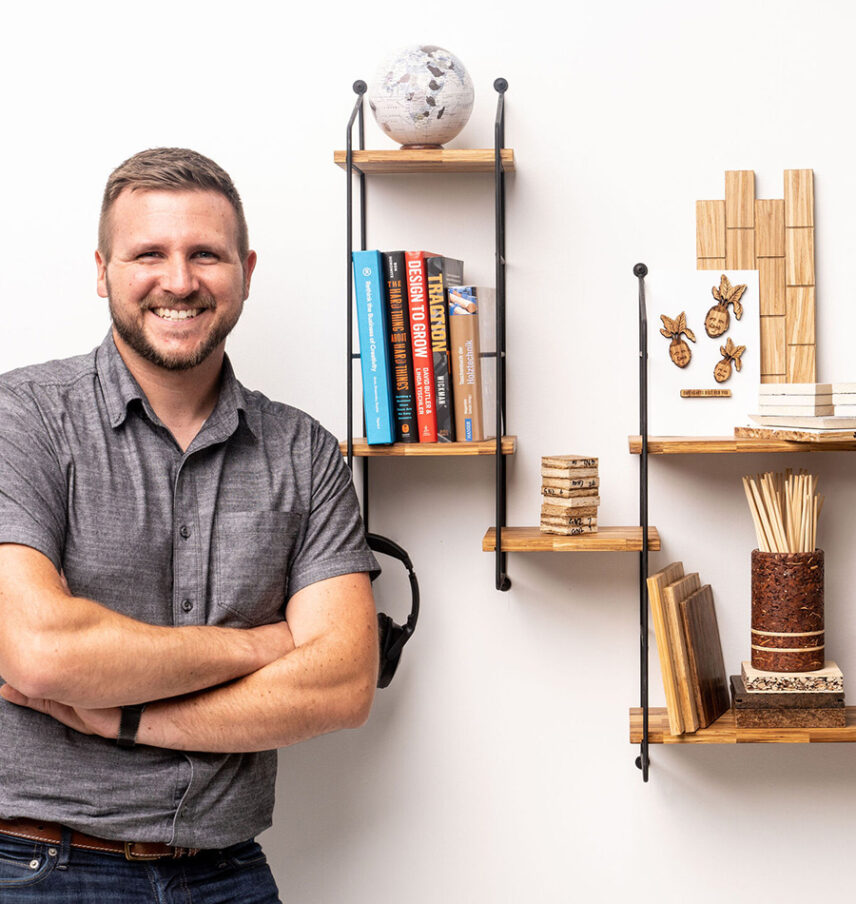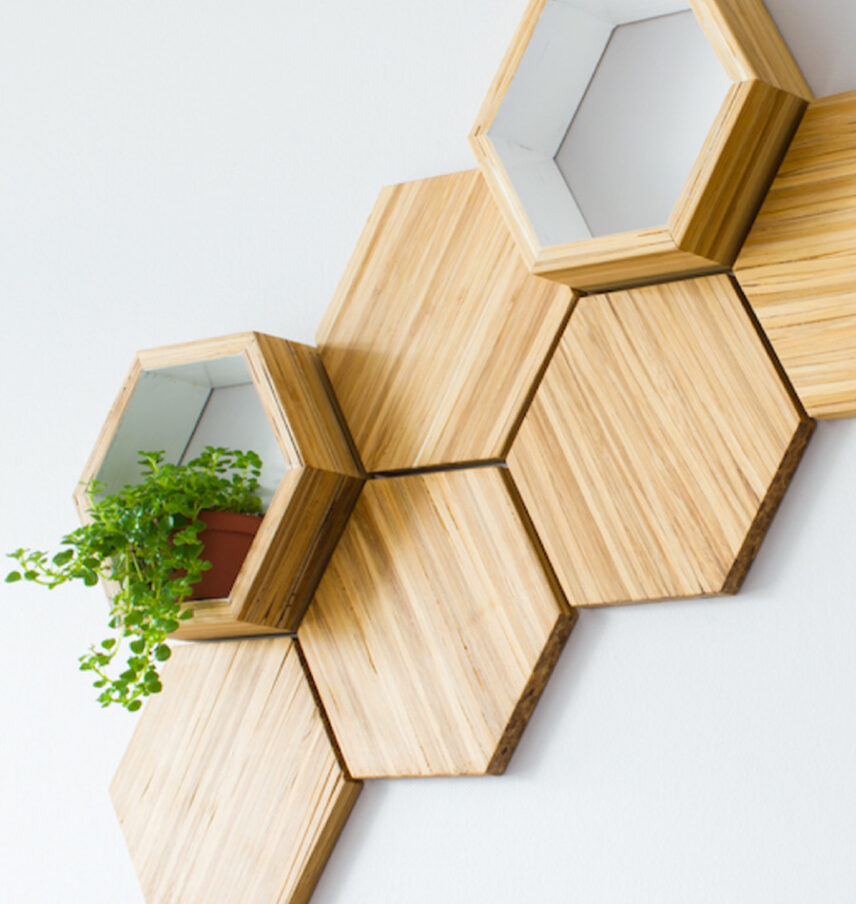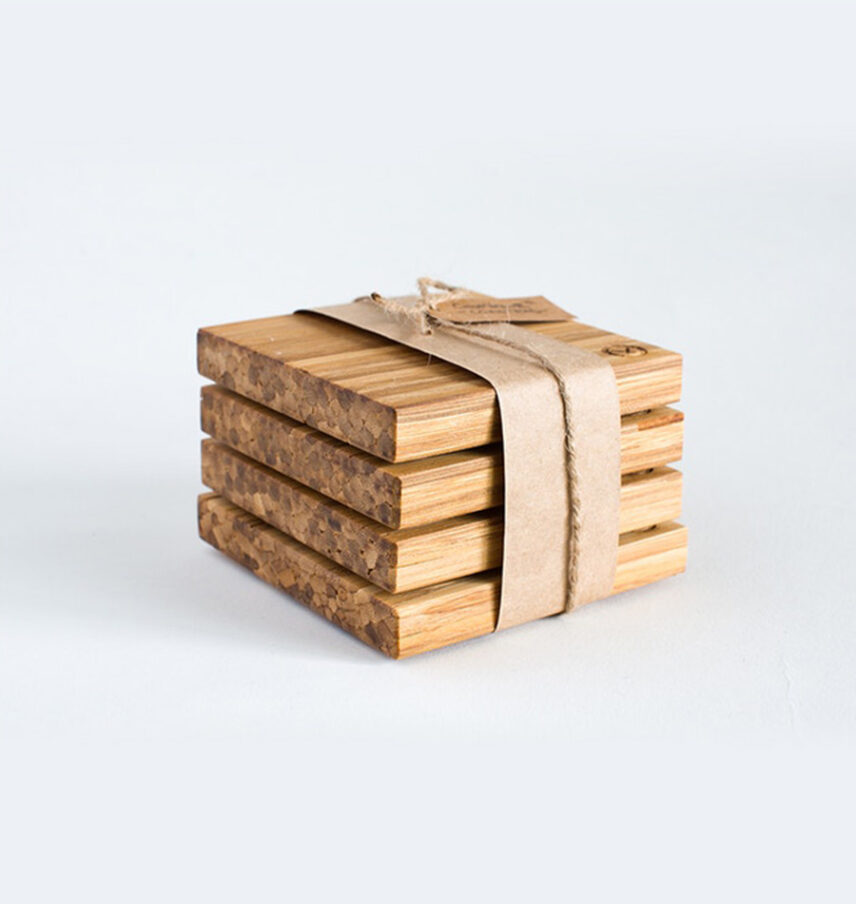“Customers can make a difference by seeing the impact they make,” Böck says, referencing a tally on the brand’s website that tracks how many kilos of carbon ChopValue’s model doesn’t produce each year. “Together, we are closing the loop on existing materials so virgin trees don’t need to be cut down for wooden products and furniture.”
In addition to its re-engineered source material, ChopValue’s business model is highly innovative: The firm operates a network of micro-manufacturing locations, partnering with franchisees to provide processing machinery and encourage resources (and employees) to stay local. In August, the brand opened its fifth Canadian location in Toronto, right after the launch of its first U.S. franchise in Las Vegas.
“We [want to] empower entrepreneurs to feel good about the business they own — locally sourcing and manufacturing products handcrafted by local talent,” says Bock. “Franchising is a way for us to grow together into a global brand without losing the relationships with our communities.”
As for what’s next, the brand has stretched far from the humble coaster into large, custom products like staircase parts and countertops. They’ve also parlayed the recent work-from-home wave into an expanded office line (hello, chopstick desks!), aptly named the Closed Loop Collection. “ChopValue exists to make a circular economy — and urban harvesting — the norm, transforming waste into a resource,” says Böck. “There is an urgency that we owe to the planet we call home; we can’t afford to think the way it’s been done is enough.”
Learn more: chopvalue.com




